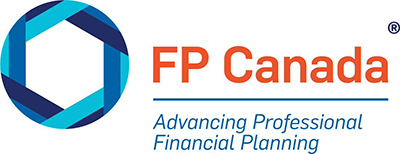Research reveals that some demographic groups score below average on key measures of financial health. FP Canada is committed to working with partners from across the financial planning profession to ensure financial wellness for all Canadians.
TORONTO, May 10, 2022 /CNW/ - FP Canada today released the IMAGINE 2030 Benchmark Report, a new white paper highlighting research that examines how Canadians feel about their financial well-being, confidence, access to financial advice and trust of financial professionals. The results reveal that many groups—including Indigenous peoples, the 2SLGBTQI community, women and people living with disabilities—score below average in key measures of financial wellness. This demonstrates an opportunity for the financial planning profession to support more Canadians by focusing on diversity, equity and inclusion (DEI).
The purpose of the research, conducted by INNOVATIVE Research Group, is to establish a current benchmark for these critical aspects of Canadians' financial health. This will allow FP Canada to measure progress in the years ahead towards IMAGINE 2030. IMAGINE 2030 is FP Canada's bold vision of financial wellness for all Canadians. A future in which all Canadians have financial confidence and well-being, all Canadians have access to professional financial planning that supports their diverse needs, and financial planning is a unified profession, recognized in statute and deemed essential by society.
The Benchmark Report introduces a series of four indices that FP Canada will track on an annual basis, to understand the progress the professional financial planning community is making to better serve all Canadians. These indices include:
- The Financial Well-Being Index, measuring how secure Canadians feel about their financial situation. The average benchmark score, based on the initial research, is 49 out of 100.
- The Financial Confidence Index, measuring how confident Canadians feel about financial matters. The average benchmark score is 64 out of 100.
- The Financial Access Index, measuring whether Canadians feel professional financial help is accessible or out of reach. The average benchmark score is 53 out of 100.
- The Financial Trust Index, measuring whether Canadians trust financial professionals or have concerns about working with them. The average benchmark score is 53 out of 100.
In addition to measuring index scores for the average Canadian, FP Canada examined scores for Canadians from a variety of demographics. The results reveal that not all Canadians experience the same level of confidence and well-being when it comes to their finances, and not all Canadians believe they can access financial services.
- Half of Canadians (50%) are worried about their financial security
- Only half of Canadians feel they can afford professional financial advice (49%) or know what questions to ask when working with a financial professional (46%)
- Only one in four Canadians (27%) say financial professionals often look like them
- Four in 10 Canadians (39%) say they find dealing with financial professionals "intimidating"
- Indigenous Canadians scored below the national average on all four indices, with the largest gap on the Financial Access Index (45 vs. 53)
- Women scored below average on all indices, with the largest gap on the Financial Confidence Index (60 vs. 64)
- New Canadians scored below average on three of the four indices, with the largest gap on the Financial Access Index (49 vs. 53)
"The results of this research demonstrate that the financial planning profession has an opportunity to do better," says Tashia Batstone, President and CEO of FP Canada. "Through collaboration among all stakeholders in the profession, I'm confident that we can come up with new ways to enable all Canadians—including the underserved demographics identified by this research—to access the professional financial planning advice they need to achieve greater financial well-being."
FP Canada is committed to working with partners from across the financial planning profession to take action on DEI. This includes working closely with post-secondary institutions to promote financial planning as a career among their diverse student populations; offering professional development opportunities for financial planners focused on DEI; and educating Canadians about the benefits of professional financial planning, regardless of their income, age, gender or race.
FP Canada is also working with financial industry firms, who themselves are leaders on DEI, to explore opportunities for collaboration and potential profession-wide DEI initiatives for the benefit of all Canadians.
The IMAGINE 2030 Benchmark Report is available on the FP Canada website.
The findings in this study are based on an online survey conducted for FP Canada by INNOVATIVE Research Group. The online survey of 4,103 Canadians outside of Quebec was conducted from September 1st to 8th, 2021. The survey was recruited using Lucid, a leading provider of online sample. The sample of n=4,103 Canadians was weighted to a representative weighted sample of n=4,000 by age, gender, education, region, and investable assets according to Statistics Canada data.
A national certification and professional oversight body working in the public interest, FP Canada is dedicated to championing better financial wellness for all Canadians by leading the advancement of professional financial planning in Canada. There are about 17,000 Certified Financial Planner® professionals and about 2,000 Qualified Associate Financial Planner™ professionals (as at March 31, 2022), who meet FP Canada's rigorous professional and ethical standards. Visit the FP Canada website for more information.
SOURCE FP Canada

For media inquiries, please contact: Matt Roth, [email protected], 647-518-6754; Lee-Anne Goodman, [email protected], 647-334-3347

Share this article